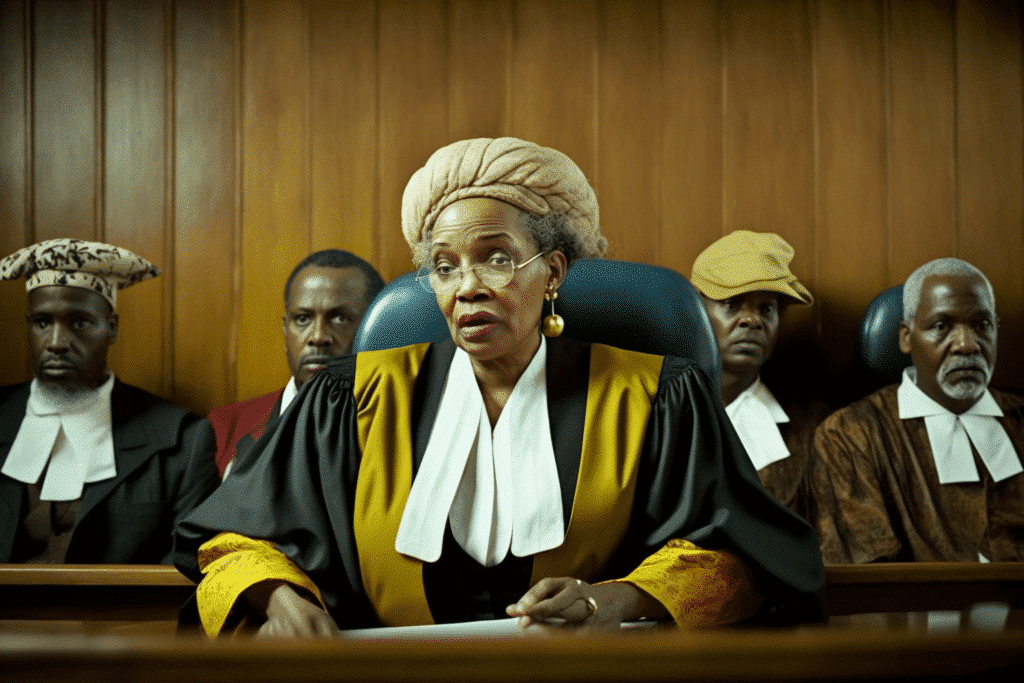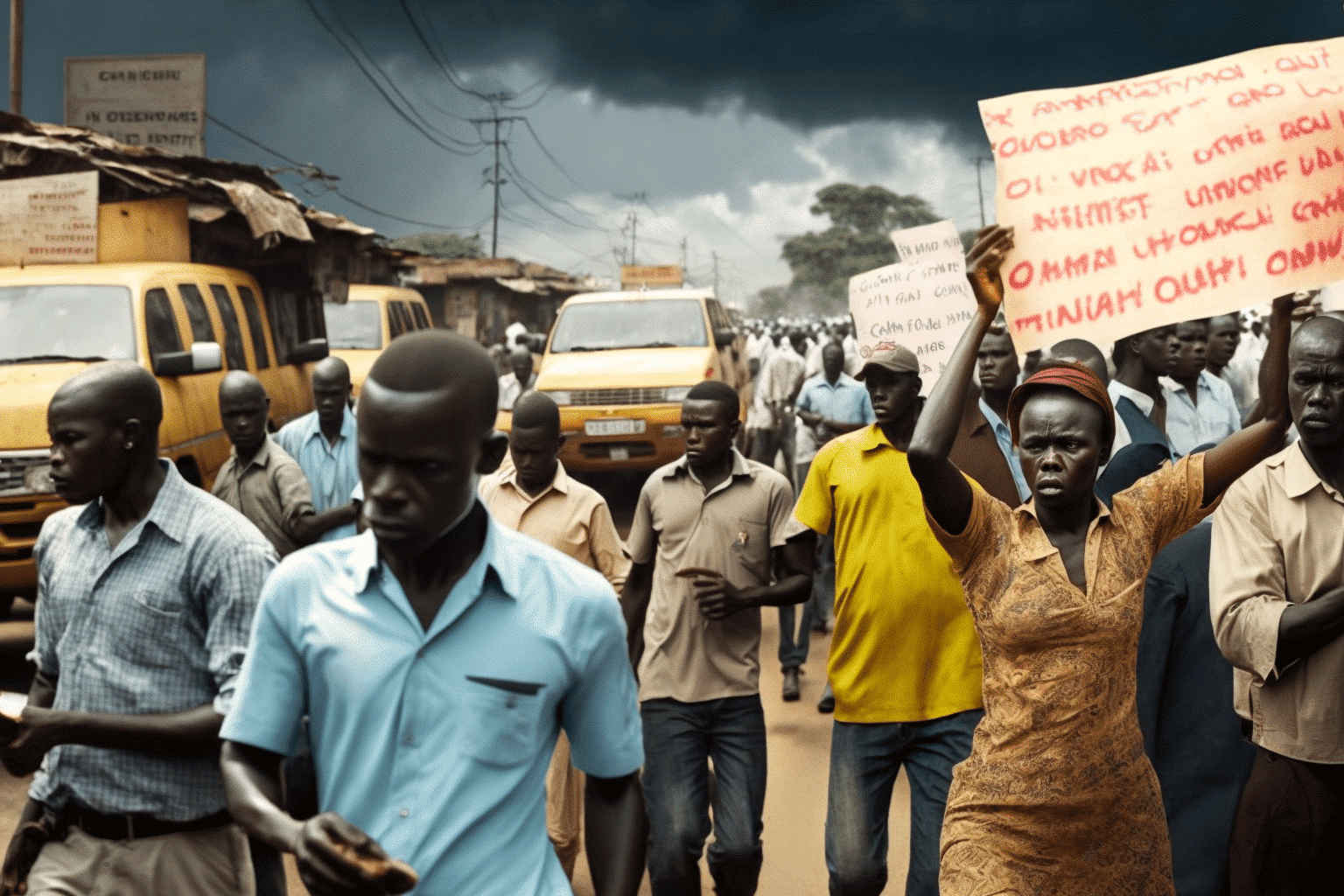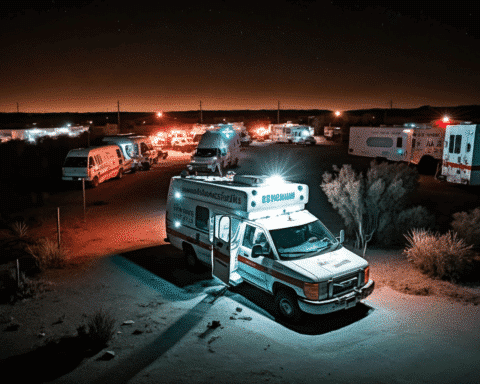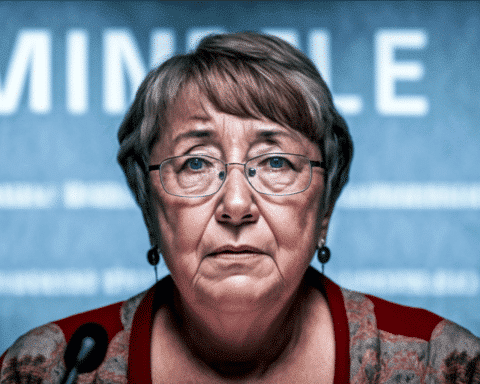Ugandan citizens who identify as homosexual face the risk of life imprisonment after the nation’s Parliament approved a new bill to eradicate same-sex relations. The bill also stipulates the death penalty in specific cases.
“We will enforce the law to ensure that homosexuals have no place in Uganda,” said Parliamentarian Musa Ecweru during the approval debate, accompanied by applause and chanting.
An LGBT rights activist informed the BBC that the bill’s debate had heightened fears of more attacks on homosexual individuals.
“There’s a lot of blackmail. People are getting calls saying, ‘If you don’t give me money, I’ll report that you’re gay,'” shared the activist.
This legislation is one of the most severe against homosexuals in Africa.
This bill introduces new criminal offences even though homosexual acts are already illegal in Uganda.
Besides making self-identification as gay illegal for the first time, the law requires friends, family, and community members to report individuals involved in same-sex relationships to the authorities.
The bill received extensive support in Uganda’s Parliament on Tuesday night.
It has been condemned by the United Nations and Amnesty International, which described it as “horrific,” “ambiguous,” and “vaguely drafted.”
“As a result of this deeply repressive legislation, LGBTI people will be institutionalized with discrimination, hatred, and prejudice, hindering legitimate work of civil society, public health professionals, and community leaders,” said Amnesty International representative Tigere Chagutah.
Anti-Homosexual Sentiment
According to an anonymous activist, Ugandan media was notably anti-homosexual in the weeks leading up to the debate.
“Queer community members have been blackmailed, extorted for money, and even lured into mob attack traps,” said the activist.
“In some areas, even law enforcement agencies are using the current environment to extort individuals accused of being homosexual. Some families are even reporting their children to the police.”
Instead of using his veto power, President Yoweri Museveni can sign or veto the bill to maintain good relations with Western donors and investors.
Museveni made several anti-gay statements recently and criticized Western countries for pressuring Uganda.
In other words, the government is exploiting the bill to distract public attention from its failures in economic management, according to another gay rights activist.
“They’re attempting to create anti-gay rhetoric to distract from what’s truly important to Ugandans. There’s no reason for a bill criminalizing consensual same-sex adult relationships,” Clare Byarugaba, a Chapter Four Uganda activist, told the BBC.

What does the bill say?
Although the final version hasn’t been officially published yet, debated elements in Parliament include:
- Children manipulated or trafficked into homosexual activity will be sentenced to life imprisonment.
- Prosecution and imprisonment for people or institutions supporting or financing LGBT rights activities or organizations or publishing, broadcasting, and distributing pro-gay material and literature in the media
- Prosecution and imprisonment for media groups, journalists, and publishers that publish, broadcast, or distribute content advocating homosexual rights or “promoting homosexuality.”
- A homosexual assault victim who contracts an incurable disease or abuses a child, a person with a disability or a vulnerable individual could be sentenced to death for “aggravated homosexuality.”
- Property owners can be imprisoned if their facilities are used as “brothels” or for other activities associated with sexual minorities.
A small group of Ugandan parliamentarians on a committee reviewing the bill disagreed with its premise, arguing that the offences it seeks to criminalize are already covered under the country’s Penal Code.
In 2014, Uganda’s Constitutional Court overturned another law that had toughened legislation against the LGBT community.
The court ruled that the legislation should be revoked because Parliament had passed it without the required quorum.
Same-sex relationships are prohibited in about 30 African countries, where many adhere to conservative religious and social values.
The passing of this harsh legislation in Uganda has raised concerns among international human rights organizations, which fear it may lead to further discrimination and violence against the LGBTQ+ community across the continent. The criminalization of same-sex relationships in many African countries stems from deep-rooted conservative beliefs and, in some cases, the influence of colonial-era laws.
Activists and human rights organizations continue to advocate for the rights and safety of LGBTQ+ individuals in Africa. They argue that these restrictive laws infringe upon fundamental human rights and exacerbate the marginalization and stigmatization of LGBTQ+ individuals.
The global community, including governments, NGOs, and international organizations, is urged to work together in promoting awareness and fostering dialogue on LGBTQ+ rights in Africa. By engaging in conversations and collaborating on initiatives that challenge discrimination and prejudice, it is hoped that attitudes will gradually change, paving the way for the recognition and protection of LGBTQ+ rights across the continent.
In the meantime, Uganda’s LGBTQ+ community and their allies face an uphill battle against implementing and enforcing this new legislation. They must rely on the international community’s resilience, courage, and support to fight for their rights and dignity in a hostile environment.




